Ginkgo Biloba Side Effects: 21 Risks & Precautions
This medicinal herb has many benefits but can attack your health in ways you never thought of.
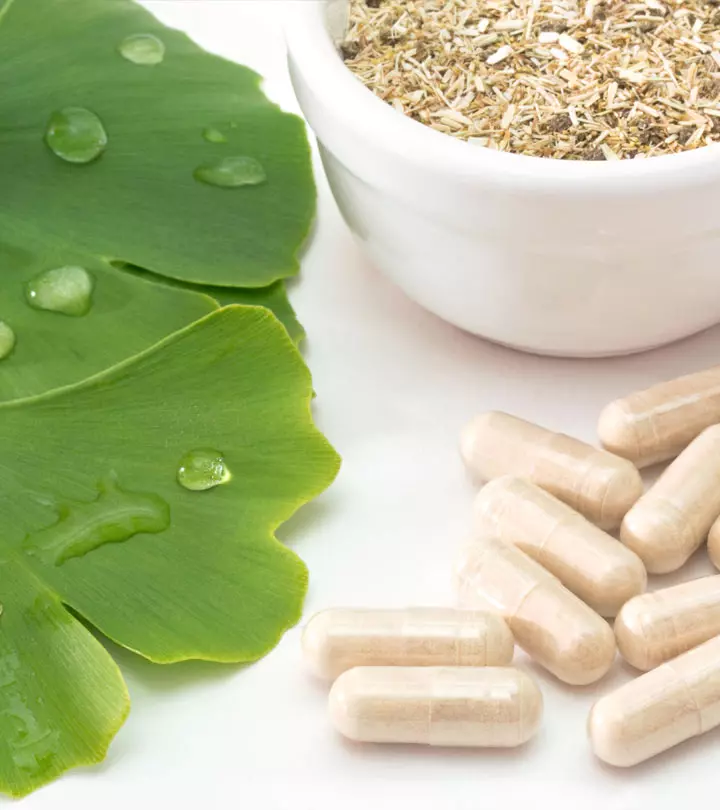
Image: shutter stock
While you may or may not be aware of the side effects of ginkgo biloba, you definitely must have heard about a few of its benefits. You need to keep in mind certain things while reaching for the fruits or leaves of this tree. If you are wondering what all it could be, worry not! We have summed up all the side effects of ginkgo biloba in this article. Read on to know more.
 Know The Flip Side: Ginkgo Biloba
Know The Flip Side: Ginkgo BilobaShort-Term Effects
Allergic reactions, headaches, nausea, dry mouth, diarrhea, and gastrointestinal discomfort.
Long-Term Effects
Bleeding disorders, seizures, anemia, increased risk of cancer, and infertility.
Drug Interactions
Excessive intake may interact with anticoagulants, diabetes medication, and antidepressants.
When To See A Doctor
If you experience difficulty in breathing, changes in vision, and irregular heartbeat.
In This Article
Ginkgo Biloba – A Brief
Native to the lands of China, Ginkgo biloba is mainly used to prepare medicines for conditions like Alzheimer’s disease and reduced blood circulation to the body and brain. It also used to treat mood swings, memory loss, and several other cognitive disorders.
 Trivia
Trivia Did You Know?
Did You Know?As with everything else, the uncontrolled and unprescribed dosage of ginkgo can cause a number of side effects that can harm you adversely. Here, we have listed 21 side effects of ginkgo biloba tablets you should be aware of. Take a look!

Key Takeaways
- Ginkgo Biloba’s antiplatelet properties can slow down blood clotting and increase the risk of bruising.
- High doses of the herb can cause skin sensitivity and rashes.
- Ginkgo Biloba can make you feel dizzy and even lead to seizures.
- It can affect insulin production and make diabetes management difficult.
Ginkgo Biloba Side Effects – Top 21
Ginkgo biloba offers many benefits, but it is important to be aware of the potential risks that may come with its use. The top side effects you should know about include:
- Excessive Bleeding
- Allergic Reactions
- Sedation
- Gastrointestinal Discomfort
- Cardiovascular Problems
- Reduces Blood Sugar Levels
- Musculoskeletal Disorders
- May Cause Infertility
- Vision Issues
- May Lead To Behavioral Changes
- May Increase The Risk Of Cancer
- Can Induce Early Labor
- Triggers Seizures
- May Cause Anemia
- Increases Appetite
- Causes Constipation
- Causes Short-Term Depression
- May Cause Diarrhea
- Dry Mouth
- May Cause Headaches And Nausea
- May Cause A Weak Pulse
We have explained these side effects of ginkgo biloba in detail below so you can be well-informed before you consider using it.
1. Excessive Bleeding

An overdose of ginkgo biloba causes excessive bleeding, which might become life-threatening. It is also known to increase the risk of bruising.
If you already have bleeding disorders or are on certain medications that can increase the risk, avoid using ginkgo. This herb has antiplatelet properties that make the blood thinner, slowing down the blood clotting process (1).
Most importantly, ginkgo biloba should never be combined with other blood thinners like aspirin or ibuprofen. It has been noted that a few people taking ginkgo with aspirin have reportedly experienced bleeding through their eyes. Some severe cases even reported brain hemorrhagei A form of stroke caused due to bleeding between the skull and the brain tissue, which needs immediate medical attention. .
Steer clear of ginkgo during your pregnancy and while you are breastfeeding. Stop its usage at least two weeks before surgery to avoid excessive bleeding.
Prevention Method
Avoid gingko biloba if you are suffering from any form of internal bleeding or if you are on blood thinning medications. Always consult your physician before you use ginkgo.
2. Allergic Reactions
Excessive use of ginkgo biloba may cause adverse allergic reactions.
Being a part of the Ginkgoaceae family (urushiols), ginkgo has high cross-reactivity that can cause your skin to become very sensitive and lead to allergic reactions (2). As a result, you may experience skin rashes, inflammation, stinging sensation, redness, numbness, hives, blistering, swelling, choking of the throat, shortness of breathing, etc. It generally affects the mucus membranes first, causing them to swell, and then proceeds to the other parts of the body.
Prevention Method
Those who are allergic to natural ingredients like poison ivy, poison sumac, poison oak, cashew shell oil, and mango rind should avoid ginkgo biloba.
If you experience any of these allergic reactions, rush to the hospital immediately.
3. Sedation
Dizziness is one of the most common ginkgo biloba side effects.
It causes minor to major sedation, such as headache, lightheadedness, drowsiness, weak pulse, loss of sense, difficulty in breathing, and seizures.
Prevention Method
Avoid the intake of gingko biloba if you are already feeling dizzy and weak. In case the symptoms arise after you consume it, visit a doctor immediately.
4. Gastrointestinal Discomfort
If you are already suffering from gastrointestinal issues, ginkgo biloba can aggravate your problem (3).
When taken in high doses, it leads to acute pain, stomach upset, abdominal cramps, irritation, diarrhea, constipation, etc. So, moderation is the key.
Prevention Method
Stay away from gingko biloba if you are suffering from any kind of gastrointestinal issues, or if you are recovering from any.
5. Cardiovascular Problems
Ginkgo biloba can affect your cardiovascular system too.
Ginkgo biloba side effects blood pressure drastically, which may cause either hypertension or hypotension. Apart from this, ginkgo biloba may also cause many serious cardiovascular issues, such as irregular heartbeats, widened blood vessels, heart palpitations, ischemia, stroke, cardiac arrest, and so on.
Prevention Method
If you have symptoms that might affect your cardiovascular health, or have just undergone a cardiac surgery, avoid use.
6. Reduces Blood Sugar Levels
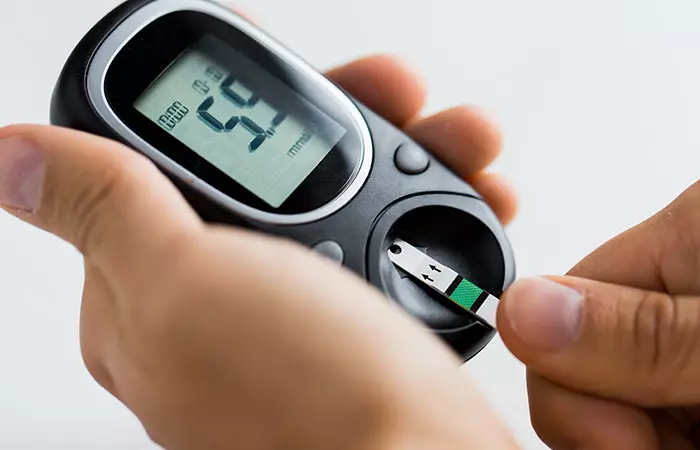
Ginkgo biloba can alter the amount of insulin produced in the body and hinder the management of diabetes (4). Taking ginkgo along with diabetes medications might reduce the effect of these medications. So, make sure you closely monitor your blood sugar levels while taking ginkgo.
Prevention Method
If you are already on diabetes medication, avoid the use of gingko biloba.
7. Musculoskeletal Disorders
The overuse of ginkgo biloba is not good for the musculoskeletal system as well.
It can make the muscle fibers weak or extremely stiff. It has also been reported that excessive intake of ginkgo extract can lead to muscle tone loss and spasms of the anal sphincter.
Prevention Method
In case you are suffering from any musculoskeletal problems, avoid use.
8. May Cause Infertility
This herb has the potential to reduce the fertility level by a large extent (5). If you are trying to conceive, you must consult your physician regarding the dosage of the herb.
Prevention Method
If you are planning to conceive, avoid use.
9. Vision Issues
Ginkgo biloba is also linked to certain vision-related problems.
If you don’t use it in moderation, you might end up with blurred vision. Apart from that, ginkgo biloba also causes increased bleeding, which may eventually result in the bleeding of the eye.
Prevention Method
Avoid gingko biloba if you have any kind of issues with your vision.
10. May Lead To Behavioral Changes
You may also experience certain behavioral changes while using ginkgo biloba.
This herb is known to affect the nervous system and can trigger neurological disorders. You might also experience nervousness, restlessness, palpitations, sadness, and many other psychiatric disorders.
Prevention Method
If you are already suffering from any kind of behavioral or anxiety disorder, avoid gingko biloba.
11. May Increase The Risk Of Cancer
Some studies have pointed out that ginkgo biloba might increase the risk of liver toxicity and cancers (6). However, this experiment was conducted on animals that were given a really high dosage of this herb. Its carcinogenic effect on humans is still being researched upon.
Prevention Method
In case you notice any cancer symptoms, avoid gingko biloba and consult your doctor right away.
12. Can Induce Early Labor

As stated earlier, ginkgo biloba should be avoided completely during your pregnancy.
This herb, when taken orally, can cause severe internal bleeding. This may harm the development of the fetus.
Prevention Method
Avoid ginkgo during the first seven months of pregnancy as its use can induce early and painful labor.
13. Triggers Seizures
It has been speculated that the uncontrolled use of ginkgo biloba can cause seizures.
Prevention Method
Completely avoid using this herb if you have had a seizure at any point in your life. This condition is especially worse in epilepsy patients as ginkgo can reduce the effectiveness of anti-seizure drugs in such cases.
14. May Cause Anemia
Ginkgo biloba might increase the risk of anemia in people with glucose-6-phosphate dehydrogenase (G6PD) enzyme deficiency (7). So, kindly avoid this herb if you have G6PD deficiency.
Prevention Method
If you are already anemic, avoid use.
15. Increases Appetite
While the reason is still being researched, ginkgo supplementation was found to increase the appetite in many individuals. There are reports stating that those taking ginkgo supplementation twice to thrice a day witnessed an unusual spike in their appetite.
Prevention Method
If you are looking forward to losing weight and eating less, avoid gingko biloba.
16. Causes Constipation
Many individuals have reported experiencing constipation after taking this herbal supplement. This might be because of the gastrointestinal effects that are triggered by ginkgo.
Prevention Method
Avoid use if you are already suffering from constipation. Consult doctor if you experience constipation after consumption.
17. Causes Short-Term Depression
Those taking ginkgo biloba supplements for a longer time report experiencing depression and severe mood swings. All these psychological mechanisms might be associated with epigenetic, physiological, and neurotransmitteri A chemical messenger that carries chemical signals from one nerve cell to a muscle or nerve cell or gland. reactions.
Prevention Method
If you are suffering from depression, take help. And avoid gingko biloba.
18. May Cause Diarrhea
Taking more than the recommended dose of ginkgo biloba might cause diarrhea. While a subset of users experienced constipation, several others complained of loose motions.
Prevention Method
Avoid use if you are already suffering from any kind of abdominal issues.
19. Dry Mouth
Dry mouth caused by impaired saliva production is also a side effect of ginkgo biloba.
While this might be a temporary effect, some people might reencounter this condition when they resume the dosage. In such cases, it is better to discontinue having it.
Prevention Method
If you are already suffering from dryness of mouth, avoid use.
20. May Cause Headaches And Nausea

The continuous use of ginkgo may trigger headache and nausea in a lot of individuals. While the degree of severity might vary from individual to individual, it’s better that you see your doctor if you experience a headache.
Nausea is linked to an impaired GI system. This symptom also shows that you can’t tolerate your current dosage, and it needs to be changed.
Prevention Method
Stay away from gingko biloba if you are suffering from migraines. If gingko biloba triggers headaches, stop its use and consult doctor.
21. May Cause A Weak Pulse
Many users have reported a weak pulse when they take this herb.
This process is related to blood thinning, which leads to impaired blood clotting. Ginkgo biloba is also known to hamper the blood flow in the system, causing a weak pulse.
Prevention Method
If you have any condition that makes your pulse go weak, avoid use. Also, visit a doctor if your pulse weakens after using gingko biloba.
 Fun Fact
Fun FactFactors That Influence Ginkgo Biloba Side Effects
There are a number of factors that influence the extent of the side effects of ginkgo biloba supplements. They are as stated below:
1. Type Of Ginkgo Biloba
Obviously, a lot of the effects of this herb depend on the variety you take. It is important to know how ginkgo is manufactured to understand the degree to which it might affect you. Ensure you buy it from a reputable brand to get the best out of the herb. The side effects may also depend on whether you are taking it in the form of capsules, tablets, gels, or special extracts. The format also affects the degree of absorption of ginkgo in the body.
2. Dosage
It is a given that with an increase in the dosage, the severity of the side effects increases. Those taking a dosage of 60 mg might not feel anything, while those on a dosage of 120 mg might experience dizziness and headache. Those taking higher dosages might experience a greater degree of side effects, including internal bleeding.
3. Time Span
The time span also plays an important role in the degree of side effects you might experience. Those on a short-term dosage might experience side effects that may dissipate after a few weeks. In cases of long-term usage, they might not experience anything in the preliminary stages, but might witness some permanent damages in the later stages.
Therefore, you may not experience any side effects if you consume ginkgo biloba in excess once or twice. Tom Nagy, an environmental consultant and a blogger, shared his experience with consuming its seeds. He said, “I have consumed more than 40 seeds in a single day more than once, but not back to back and have not experienced any of the symptoms associated with 4’-O-methylpyridoxine (Ginkgotoxin) poisoning which includes nausea, vomiting, nervous irritability or convulsions (i).”
4. Interactions
Natural herbs are known to interact adversely with a number of drugs. Those taking this herb supplement with alcohol, drugs, and blood thinners might experience side effects on a greater scale when compared to the normal masses.
5. Genetic Make-up And Behavioral Factors
Many of the side effects of gingko are heavily dependent on your genetic makeup, hormonal levels, sleeping patterns, and dietary habits. This variation is why two individuals taking the same dose at the same time might experience different levels of side effects.
Recommended Dosage Of Ginkgo Biloba

Remember, these severe side effects of ginkgo biloba are dose dependent. So, if you know how much to take, this herb will not harm you. The key is to strictly follow the recommended values at defined times to extract the best of the ginkgo biloba benefits.
The dosage strictly depends on the condition, gender, and age group, and can range between 40-300 milligrams daily. Those with anxiety disorders are supposed to take lower doses (about 40 milligrams daily), while those with cognitive disorders are recommended a dose of 120 milligrams daily. A higher amount is needed for the treatment and control of hormonal imbalances, inflammation, and mood swings.
You can take this herb in many forms – capsules, liquid extracts, tablets, or dried leaf. All these varieties can be found easily in medical stores and e-commerce sites. Simply look for a type that contains 24 to 32 percent flavonoidsi Chemical substances present in plants that protect against oxidative damage and reduce the risk of diabetes. (or flavone glycosides), and 6 to 12 percent terpenoidsi A class of chemical compounds that may slow down the growth and development of liver cancer cells. .
Now you know what are the ginkgo biloba side effects. Let’s look into what is the recommended dosage.
Recommended Dosage
- Alzheimer’s Disease – You need to take 240-600 milligrams of ginkgo extract orally for 10 months. The dose should be divided into three parts for three times in a day.
- Altitude Sickness – Take 160 milligrams of ginkgo once daily for 4 to 5 days.
- Autism – Take 100 milligrams of ginkgo orally for four weeks.
- Blood Pressure – Take 120 milligrams of ginkgo orally once daily.
- Cancer Prevention – Take 120 milligrams of ginkgo orally twice daily.
- Cognitive Performance – Take 600 milligrams of ginkgo orally in the form of a tablet once daily for four months.
- Decreased Libido – Take 240 milligrams of ginkgo orally for up to 18 months.
- Depression And Seasonal Affective Disorder (SAD) – Take 240 milligrams of ginkgo orally for up to two months.
- Glaucomai A group of eye diseases that results in optic nerve damage and loss of vision due to high or even normal eye pressure. – Take 300 milligrams of ginkgo orally daily in divided doses.
- Heart Disease – Take 120 milligrams of ginkgo twice daily.
- Memory Enhancement – Take 120-360 milligrams of ginkgo orally daily in single or divided doses.
- Premenstrual Syndrome (PMS) – Take 320 milligrams of ginkgo daily in single or divided doses.
Ideally, you should consult a healthcare professional before taking ginkgo biloba for any ailment. They can provide personalized advice and suggest the right dosage based on your medical history and specific health needs. This will help mitigate the risks of ginkgo biloba and ensure safe use.
We saw the adverse effects ginkgo biloba may cause. Does this mean it is totally unsafe? Understand further in the next section.
Is Ginkgo Biloba Safe?
Consuming ginkgo leaf extract in moderate quantities is generally safe. However, those allergic to it may experience headaches, tummy troubles, dizziness, heart palpitations, constipation, and skin reactions.
As we saw earlier, taking ginkgo leaf extract for two years showed an increased risk of liver and thyroid cancer. However, whether these results also apply to humans is yet to be studied (6).
Ginkgo may also be unsafe for consumption during pregnancy as it may lead to early labor or increased bleeding during delivery if used around that time (8).
Ginkgo biloba is suggested to be consumed under the guidance of a healthcare professional or a qualified nutritionist. It may improve overall brain health and exhibits antioxidant properties that may protect cells from free radical damage (9), (10).
Infographic: Precautions To Take With Ginkgo Biloba
Ginkgo biloba is a popular herbal medicine. Its rich antioxidant content offers several benefits. However, overconsumption of this herb may lead to many side effects, and one should exercise restraint to avoid adverse reactions. Check out the infographic below to learn precautions while using ginkgo biloba.
Some thing wrong with infographic shortcode. please verify shortcode syntax
Ginkgo Biloba, also known as a living fossil, has many medicinal properties. The extracts of Ginkgo Biloba are rich in antioxidants that help treat many ailments. However, excess consumption of Ginkgo Biloba adversely affects you in many ways. Unprescribed or uncontrolled intake of this herb may cause excessive bleeding, allergic reactions, sedation, gastrointestinal discomfort, cardiovascular problems, and hypoglycemiai A condition where the blood sugar level is lower than the normal range and causes symptoms like confusion and heart palpitations. . It may also cause nausea, vomiting, headache, and interfere with many drugs. Hence, consume it at the recommended dosage.
Stay fit, stay healthy!
Frequently Asked Questions
How long does ginkgo stay in your system?
Ginkgo biloba stays in the system for approximately 24 – 48 hours. After that, it usually leaves the system without any side effects.
Can ginkgo biloba be taken at night?
Yes, it is safe to take ginkgo biloba at night. Having it at night may improve sleep quality. However, studies in this aspect are inconclusive. Hence, consult your doctor before taking it.
Should I take ginkgo biloba on an empty stomach?
No, ginkgo biloba should not be taken on an empty stomach as there is less absorption of nutrients. Taking it after a meal helps reap its benefits.
Can I take ginkgo and ashwagandha together?
Yes, ginkgo biloba is safe to be taken with ashwagandha. This combination can improve cognitive function and significantly reduce memory problems associated with aging.
Can you take fish oil and ginkgo biloba together?
There are no significant interactions found between fish oil and ginkgo biloba. However, if you want to take them together, it is advised to consult your doctor first.
Illustration: Side Effects Of Ginkgo Biloba | Recommended Dosage

Image: Stable Diffusion/StyleCraze Design Team
Explore the potential side effects and drug interactions of ginkgo biloba in this informative video. Stay informed and make educated decisions about your health. Watch now for valuable insights and take control of your well-being.
Personal Experience: Source
StyleCraze's articles are interwoven with authentic personal narratives that provide depth and resonance to our content. Below are the sources of the personal accounts referenced in this article.
i. Foraging fun: ginkgo bilobahttps://outsidethehops.wordpress.com/2014/11/04/foraging-fun-ginkgo-biloba-2/
References
Articles on StyleCraze are backed by verified information from peer-reviewed and academic research papers, reputed organizations, research institutions, and medical associations to ensure accuracy and relevance. Read our editorial policy to learn more.
- Fibrinolytic effects of Ginkgo biloba extract
https://www.ncbi.nlm.nih.gov/pmc/articles/PMC2716226/ - IgE immune response to Ginkgo biloba pollen
https://pubmed.ncbi.nlm.nih.gov/11061473/ - Ginkgo biloba–effect adverse events and drug interaction
https://pubmed.ncbi.nlm.nih.gov/22562327/ - The effect of 3-month ingestion of Ginkgo biloba extract (EGb 761) on pancreatic beta-cell function in response to glucose loading in individuals with non-insulin-dependent diabetes mellitus
https://pubmed.ncbi.nlm.nih.gov/11402628/ - https://www.ncbi.nlm.nih.gov/pmc/articles/PMC2697773/
- Toxicity and Carcinogenicity Studies of Ginkgo biloba extract in Rat and Mouse: Liver
Thyroid - Acute hemolytic anemia in glucose-6-phosphate dehydrogenase deficiency complicated by Ginkgo biloba
https://pubmed.ncbi.nlm.nih.gov/23970095/ - Safety and efficacy of ginkgo (Ginkgo biloba) during pregnancy and lactation
https://pubmed.ncbi.nlm.nih.gov/17085776/ - Efficacy and adverse effects of ginkgo biloba for cognitive impairment and dementia: a systematic review and meta-analysis
https://pubmed.ncbi.nlm.nih.gov/25114079/ - Neuroprotective and Antioxidant Effect of Ginkgo biloba Extract Against AD and Other Neurological Disorders
https://pubmed.ncbi.nlm.nih.gov/31376068/
Read full bio of Mayuri Aavula
Read full bio of Tanya Choudhary
Read full bio of Ravi Teja Tadimalla
Read full bio of Moksha Gandhi







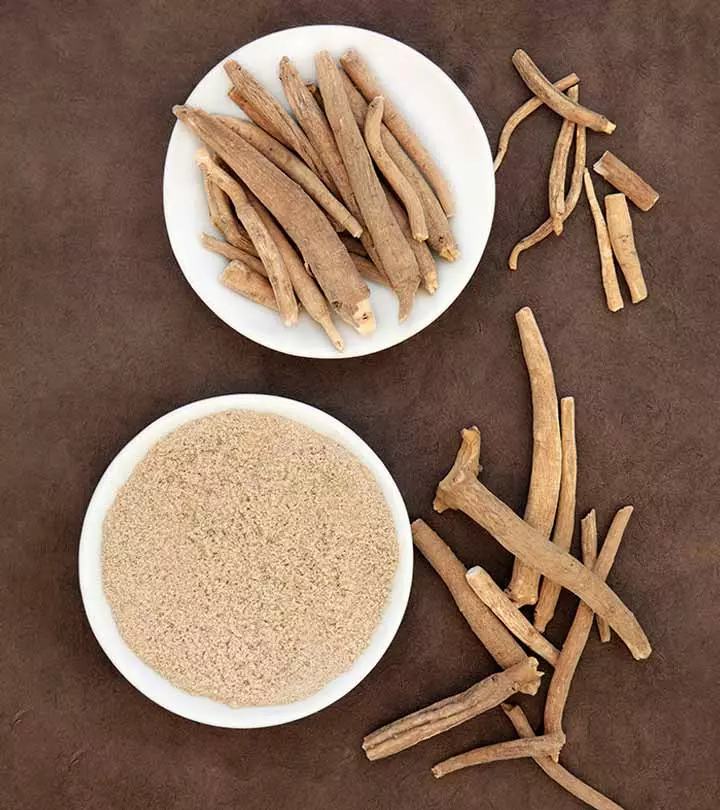
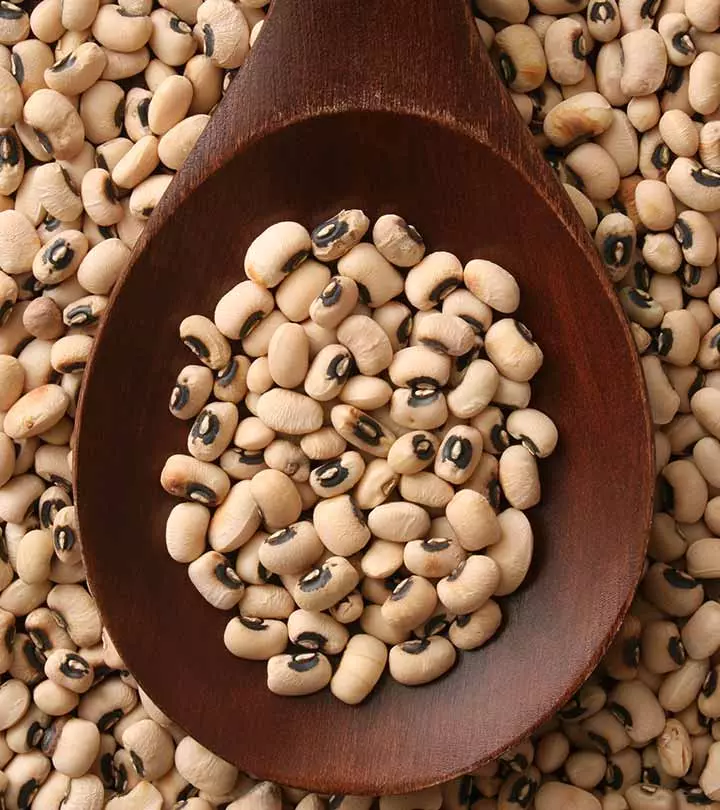
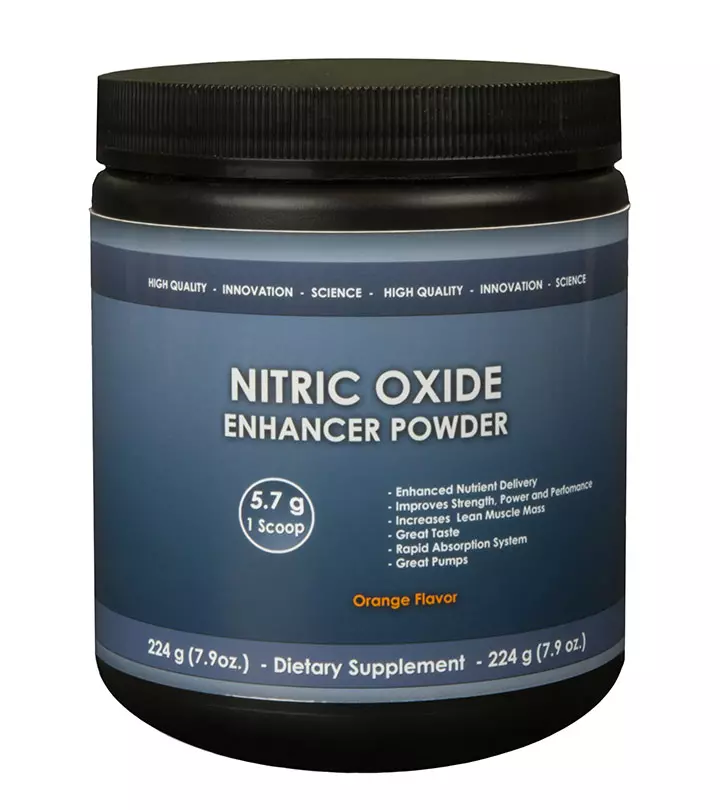


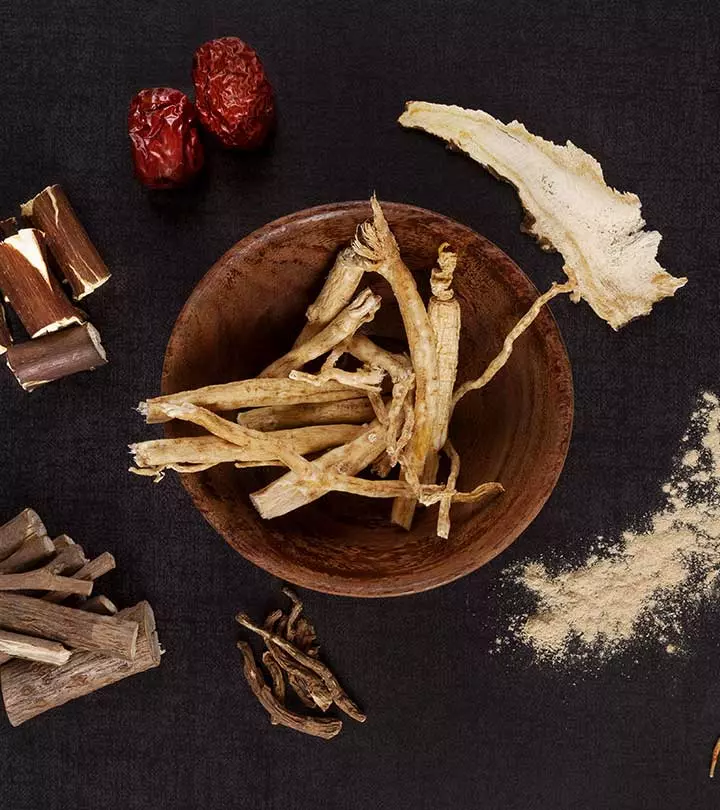


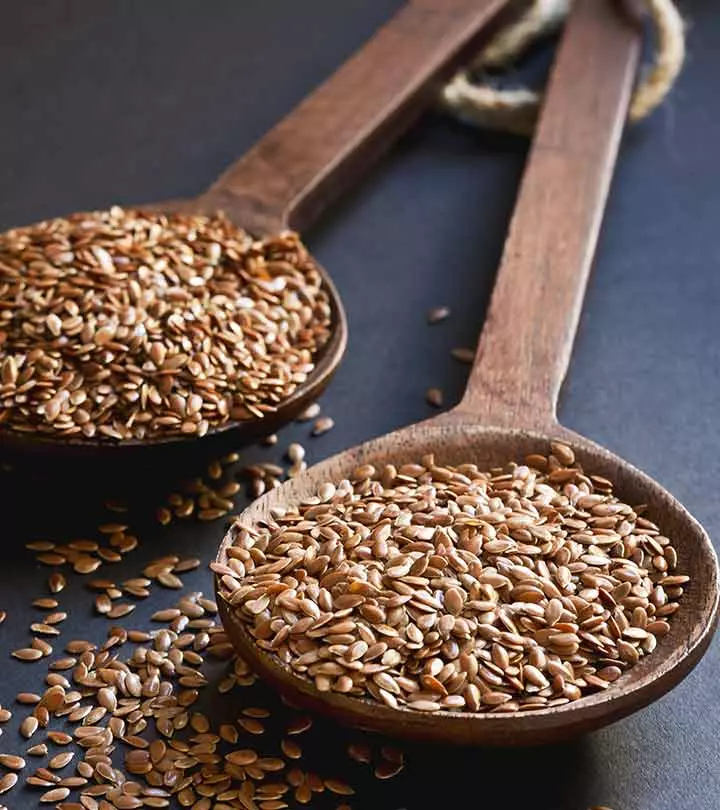
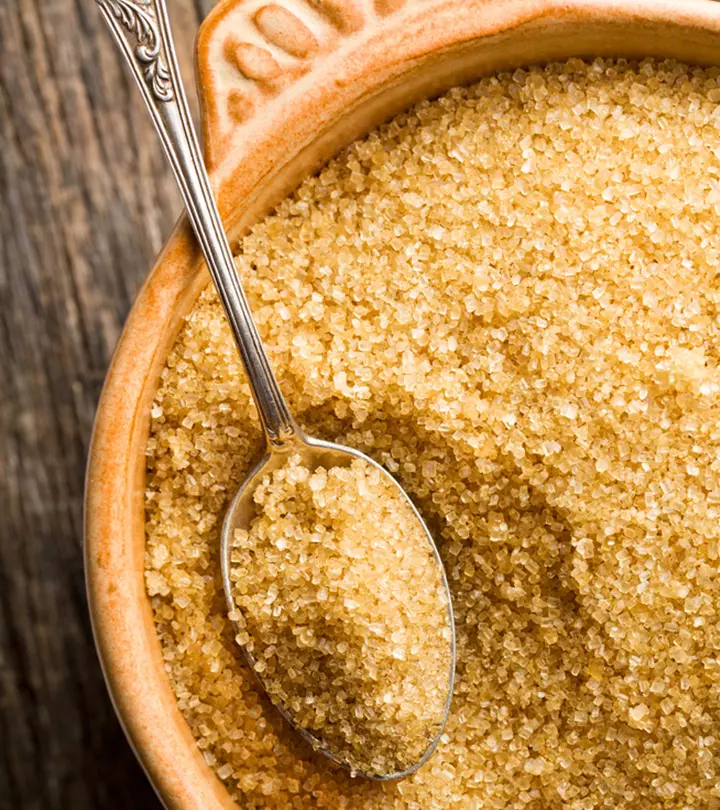
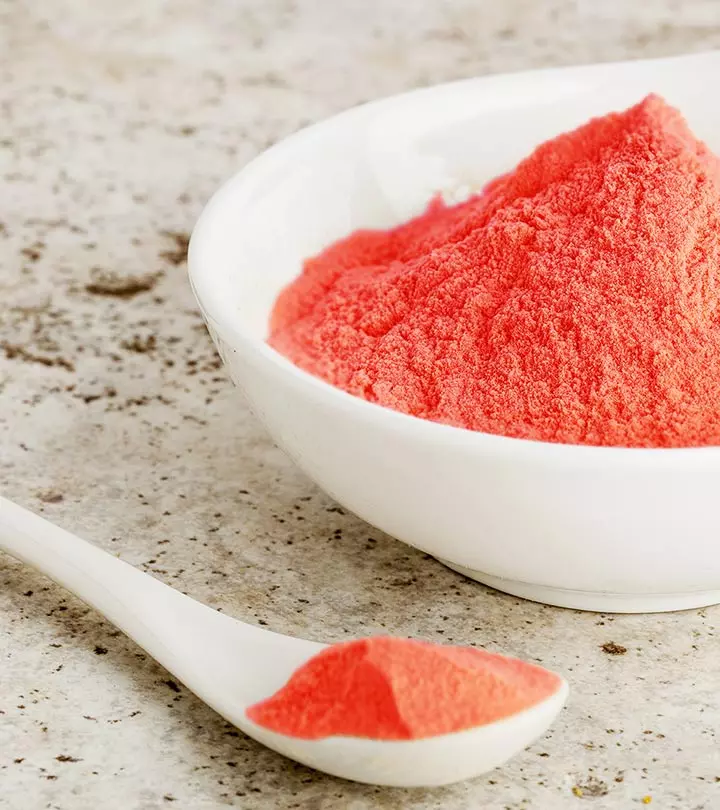
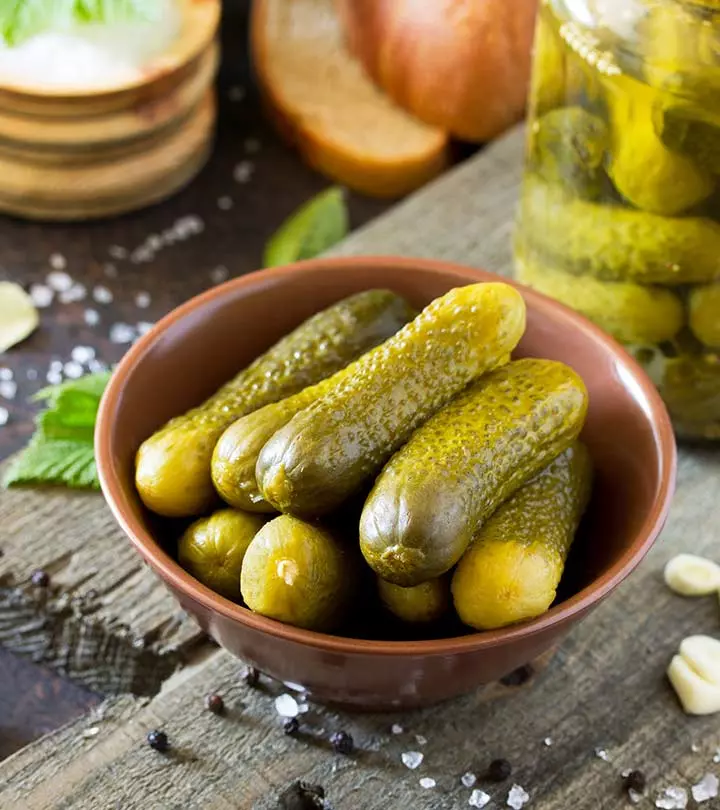


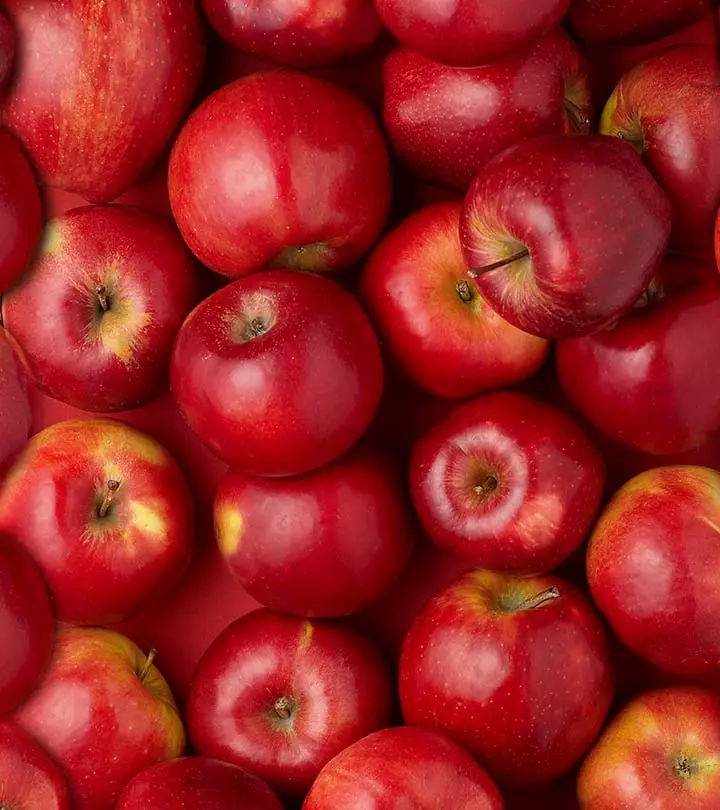

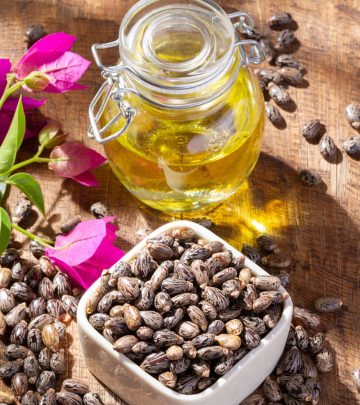
Community Experiences
Join the conversation and become a part of our empowering community! Share your stories, experiences, and insights to connect with other beauty, lifestyle, and health enthusiasts.